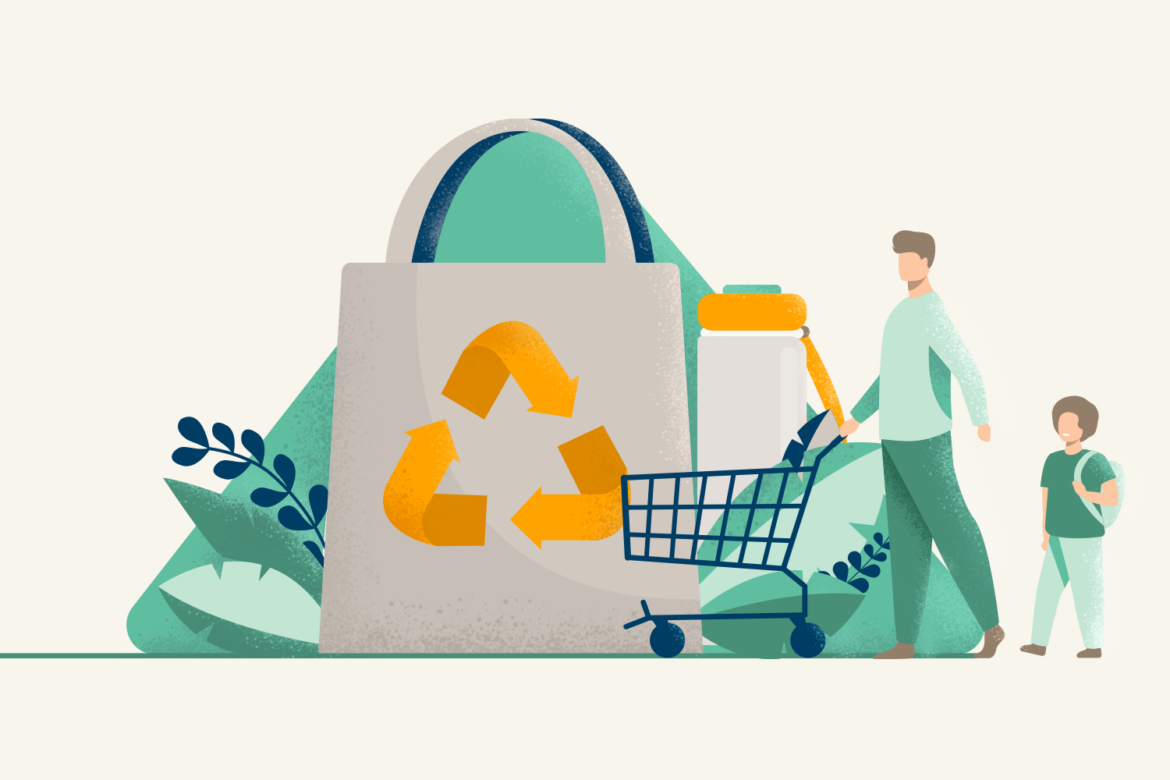By Iva Liu, Group Marketing Manager and Dominic Mason, Managing Director SEA, Sedgwick Richardson –
As Vietnam emerges from the pandemic, consumer spending is projected to grow by 5.7% per annum with retail sales growing up to 9% in the same period, according to research by Fitch Solutions.[i] Challenges remain. Other than consumer inflation and logistical bottlenecks, sustainable consumption continues to top discussions in the retail sector.[ii]
The World Bank reports that the natural environment (forests, lakes, rivers, and oceans) provides a significant share of household’s necessary resources in developing countries[iii]. It is for this reason that environmental problems affect developing countries the most. Vietnam is no exception.
This might explain why, according to recent research published by MDPI, Vietnamese consumers are increasingly concerned about sustainable consumption.[iv] They tend to have a stronger knowledge about the environment, stronger values about sustainability, and better attitudes towards sustainable purchasing than a developed country like Japan.
Likewise, 55% of 14,000 consumers interviewed in a local survey by IBM’s Institute for Business Value[v] had expressed that sustainability is an extremely important factor when choosing a brand and 62% are willing to change their buying behaviour to reduce negative environmental impact.
Nurturing a culture of sustainable consumption
However, in Vietnam, there are structural and systematic limitations to sustainability. Based on a study done by UNESCAP, up to 85% of waste generated in Vietnam is disposed of at landfills without treatment and without intention to recycle.[vi] There are no eco-friendly shopping regulations in Vietnam that govern retail production and environmentalism. This demonstrates that Vietnamese consumers still face limited capability to practice sustainable consumption.
To address this challenge, the Vietnamese government has been implementing sustainability policies. Ho Chi Minh City recently launched the Green Consumption Campaign; a national Green Growth Strategy was issued late last year; the Prime Minister approved the “National Environmental Protection Strategy until 2030 and vision until 2050” earlier in April[vii]; and revised the Law on Environmental Protection in January[viii] to integrate circular economy in governmental planning.
Shopping for good
Sustainability initiatives are not only beneficial for the environment, but they also make business sense. Research conducted by Nielson[ix] found that “86% of consumers in Vietnam are willing to pay higher for products and services that come from companies who are committed to positive social and environmental impacts”. As such, while consumers gradually change and shift to live greener, cleaner, and healthier, brands are also transforming to meet demands.
The Vietnam Investment Review recently hosted a talk show titled, “Innovative Solutions & Substitutes for Single-use Plastic Towards Green Consumption”[x] on 23 June 2022, inviting the private sector to discuss ways to reduce plastic waste, highlighting consumer trends towards sustainable consumption.
Representatives from three large retailers discussed the recent strategies and programmes they have implemented to promote sustainability. Aeonmall Vietnam implemented programmes to change shopping behaviour for the better, such as rental system of eco-friendly shopping bags, utilising bagasse trays, cutting down on plastic bags in packaging, and more. Tan Phu JSC is diversifying their product portfolio to lengthen product lifecycles. Cho Tot, an e-commerce network, targets Generation Z in their recycling programmes.
Equally important for brands is building trust with consumers. By demonstrating that they care about their society and the environment through implementing sustainability programmes to drive sustainable consumption, consumer brands can actively build trust with consumers.
[i] https://www.fitchsolutions.com/consumer-retail/vietnam-consumer-outlook-strong-growth-retail-sales-leaves-low-base-effects-behind-17-05-2022?fSWebArticleValidation=true&mkt_tok=NzMyLUNLSC03NjcAAAGFQyp4MDvcrR1FOeoXYO_RzQbhq7pUOPXqvmL_2uv6b2LrxSleE1zt9nIUpFvrqV7sc6J1rc6n12a1UShKjhkF0VJfyjzoKBNFjiJuAGvi6CU9TTgnNA
[ii] https://www.euromonitor.com/megatrends-in-vietnam/report
[iii] https://www.worldbank.org/en/topic/environment/overview
[iv] https://www.mdpi.com/2071-1050/13/17/9825/pdf
[v] https://tapchitaichinh.vn/tai-chinh-kinh-doanh/san-xuat-va-tieu-dung-ben-vung-thich-ung-voi-boi-canh-dich-covid19-339179.html
[vi] https://www.vietnam-briefing.com/news/vietnams-circular-economy-revised-law-on-environment-protection.html/
[vii] https://thuvienphapluat.vn/van-ban/Tai-nguyen-Moi-truong/Quyet-dinh-450-QD-TTg-2022-phe-duyet-Chien-luoc-bao-ve-moi-truong-quoc-gia-den-2030-509977.aspx
[viii] https://vir.com.vn/retailers-endeavor-to-promote-sustainable-consumption-patterns-94464.html
[ix] https://www.nielsen.com/wp-content/uploads/sites/3/2019/04/Vietnam_CSR20release_EN.pdf
[x] https://vir.com.vn/retailers-endeavor-to-promote-sustainable-consumption-patterns-94464.html
All views and opinions expressed on this site are those of the individual authors and comments on this site are the sole responsibility of the individual contributor.

